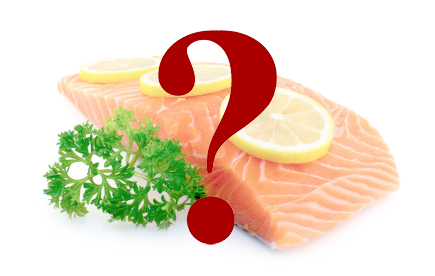Are Those Filets Real? Mislabeling of Wild Salmon Continues

Full traceability throughout the entire seafood supply chain is recommended following a study released yesterday by Oceana involving the mislabeling of salmon. The organization found that 43% of samples taken from restaurants and grocery stores were mislabeled, with DNA testing uncovering that 69% of mislabeling involved farmed Atlantic salmon that was labeled and sold as wild-caught salmon. According to Oceana, the report is the largest salmon mislabeling study in the United States yet.
“The federal government should provide consumers with assurances that the seafood they purchase is safe, legally caught and honestly labeled,” said Beth Lowell, senior campaign director at Oceana in a press release. “Traceability needs to be required for all seafood to ensure important information about which species it is, whether it was farmed or wild caught, and how and where it was caught follows all seafood from boat (or farm) to plate.”
At this year’s Food Safety Consortium conference, industry experts will discuss Supply Chain Risk Management, Foreign Supplier Verification, and a range of other food safety issues. REGISTER HERE
Oceana combined a nationwide study of 384 samples with a winter survey of 82 samples to learn whether there was a correlation between time and location. Findings revealed that the majority of the mislabeling in restaurants occurred when the fish was out of season. In addition, high rates of mislabeling were found on the East coast—37% in New York City, 45% in Washington, DC, and 48% in Virginia. It is important to note that the 43% of the samples deemed mislabeled derived from the smaller winter survey.
Samples were considered mislabeled if:
- Described as wild, Pacific, or Alaska and DNA testing proved them to be farmed Atlantic salmon
- Labeled as a specific type of salmon but testing proved them to be a different species
In the report Oceana takes issue with FDA’s guidance on seafood naming, calling it “neither clear nor consistent”, along with Country of Origin Labeling for seafood. The organization urges the Presidential Task Force on fish and seafood fraud (established last year) to set forth a requirement that all seafood sold domestically have documentation proving it came from a legal source, along with full supply chain traceability. The task force released its final action plan in March, but Oceana is asking that the group expand documentation requirements as a market access condition. Oceana’s full report provides a breakdown of its investigation.